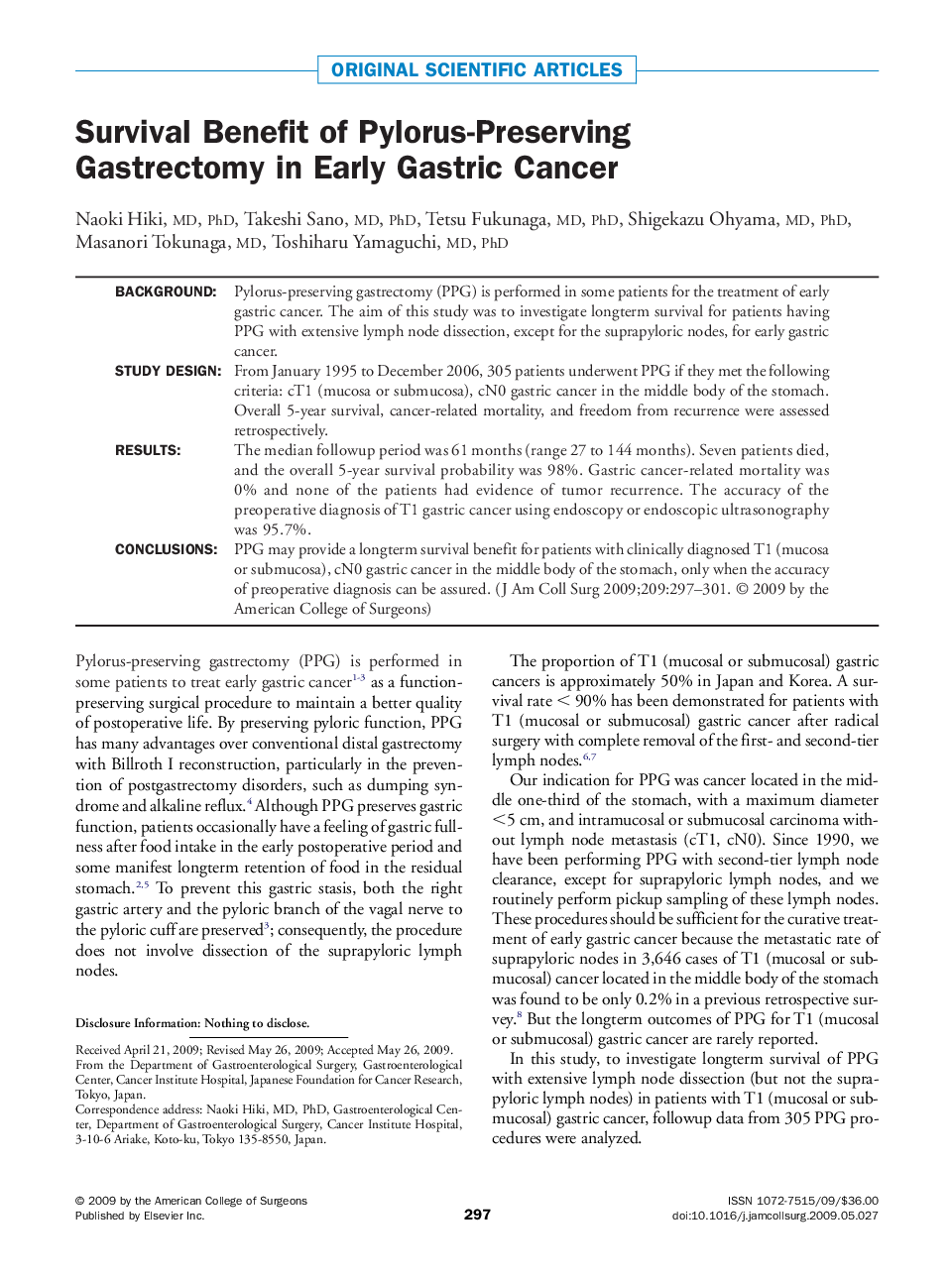| Article ID | Journal | Published Year | Pages | File Type |
|---|---|---|---|---|
| 4295104 | Journal of the American College of Surgeons | 2009 | 5 Pages |
BackgroundPylorus-preserving gastrectomy (PPG) is performed in some patients for the treatment of early gastric cancer. The aim of this study was to investigate longterm survival for patients having PPG with extensive lymph node dissection, except for the suprapyloric nodes, for early gastric cancer.Study DesignFrom January 1995 to December 2006, 305 patients underwent PPG if they met the following criteria: cT1 (mucosa or submucosa), cN0 gastric cancer in the middle body of the stomach. Overall 5-year survival, cancer-related mortality, and freedom from recurrence were assessed retrospectively.ResultsThe median followup period was 61 months (range 27 to 144 months). Seven patients died, and the overall 5-year survival probability was 98%. Gastric cancer-related mortality was 0% and none of the patients had evidence of tumor recurrence. The accuracy of the preoperative diagnosis of T1 gastric cancer using endoscopy or endoscopic ultrasonography was 95.7%.ConclusionsPPG may provide a longterm survival benefit for patients with clinically diagnosed T1 (mucosa or submucosa), cN0 gastric cancer in the middle body of the stomach, only when the accuracy of preoperative diagnosis can be assured.
